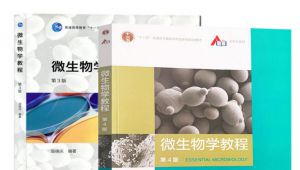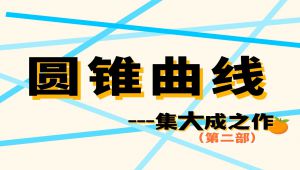- 0.1 欢迎来学昆虫101~~~
- 0.1 Welcome to Bugs 101
- 0.2 课程引路人
- 0.2 Introduction to your Course Facilitator
- 01.01 Introduction
- 01.02 Arthropods
- 01.03 Arthropod Evolution and Classification
- 01.04 Small Body Size
- 01.05 Metamorphosis Dispersal and Reproductive Capabilities
- 01.06 Major Insect Orders
- 01.07 Insect Collections in Museums
- 01.08 Starting Your Insect Collection
- 01.09 Module 01 Wrap Up
- 01.10 Royal Alberta Museum Bug Gallery Tour
- 02.01 The Business of Being an Insect
- 02.02 Insect Body Regions and Head
- 02.03 Insect Thorax and Abdomen
- 02.04 Digestion and Excretion
- 02.05 Circulation and Gas Exchange
- 02.06 Module 02 Wrap Up
- 03.01 More Business of Being an Insect
- 03.02 Nervous System
- 03.03 Courtship and Mating
- 03.04 Male and Female Reproductive Structures
- 03.05 Modes of Reproduction
- 03.06 Mating Disruption and SIT
- 03.07 Module 03 Wrap Up
- 04.01 Insects on the Move
- 04.02 Passive and Active Dispersal
- 04.03 Insect Musculature
- 04.04 Insect Legs and Modifications
- 04.05 Insect Wing Structure
- 04.06 Insect Wing Modifications
- 04.07 Insect Flight Muscles
- 04.08 Studying Insect Flight
- 04.09 Insect Migration
- 04.10 Insect Migration:Locusts
- 04.11 Insect Migration:Monarch Butterfly
- 04.12 Module 04 Wrap Up
- 05.01 Insects as Decomposers
- 05.02 Nutrient Cycling
- 05.03 Detritivore Feeding Guilds
- 05.04 Insect Development
- 05.05 Development and Succession in Forensics
- 05.06 Module 05 Wrap Up
- 06.01 Plant Feeding and Impacts of Herbivory
- 06.02 Coevolution & Ecological Fitting
- 06.03 Levels of Diet Specialisation
- 06.04 Plant Defences
- 06.05 Plant Feeding Guilds
- 06.06 Impacts of Insect Herbivores
- 06.07 Module 06 Wrap Up
- 07.01 Pollination and Beekeeping
- 07.02 Pollination
- 07.03 Pollinator Challenges and Importance
- 07.04 Apiculture
- 07.05 Honey Bee Eusociality and Castes
- 07.06 Honey Bee Biology
- 07.07 Honey Bee Communication
- 07.08 Threats to Honey Bees
- 07.09 Module 7 Wrap Up
- 08.01 Insects and Disease
- 08.02 Etiological Agents and Disease Vectors
- 08.03 Arthropod-borne Human Diseases
- 08.04 Arthropod-borne Animal Diseases
- 08.05 Arthropod-borne Plant Diseases
- 08.06 Module 08 Wrap Up
- 09.01 Sustainable Human-Insect Interactions:IPM
- 09.02 Integrated Pest Management
- 09.03 IPM:Chemical Control
- 09.04 Types of Insecticides
- 09.05 Advantages and Limitations of Insecticides
- 09.06 Module 09 Wrap Up
- 10.01 IPM:Biological and Cultural Control
- 10.02 Biological Control
- 10.03 Types of Biological Control
- 10.04 Pros and Cons of Biological Control
- 10.05 Cultural Control
- 10.06 Module 10 Wrap Up
- 11.01 Insect Conservation
- 11.02 Conservation of Insect Diversity
- 11.03 The Changing World and Insects
- 11.04 The Changing Climate and Insects
- 11.05 Invasive Species and Harvesting by Humans
- 11.06 Conserving and Managing Insect Diversity
- 11.07 Module 11 Wrap Up
- 12.01 Insects in Human Culture
- 12.02 Myths and Symbols
- 12.03 Art Literature and Film
- 12.04 Products Science and Technology
- 12.05 Entomophagy:Insects as Food
- 12.06 Module 12 Wrap Up
- 13.01 Bugs 101 Wrap Up
昆虫学是生态学专业的一门重要专业课程。其开设的目的是该专业的学生
了解昆虫学的基础知识,掌握主要农作物的害虫的发生规律和防治措施,为今后的防治实践
奠定良好的理论和实践基础。
昆虫学是一门综合性学科,它必须讲授昆虫外部形态、昆虫生理学、昆虫生物学、昆虫
分类、昆虫生态学及害虫预测预报、害虫综合防治原理及方法等基础知识,为讲授农作物害
虫奠定基础。
昆虫学中各论部分实践性、地区性、时间性均很强,因此以长江中下游地区和江苏省的
主要害虫为主,具体讲授水稻、小麦、棉花、蔬菜、林果等作物发生的主要害虫及地下害虫,
使同学们能够融会贯通、举一反三。
昆虫学理论课以课堂讲授为主,结合实验教学,以加深理解课程的内容。课堂讲授主次
分明,重点突出。多讲授一些最新动态,以教师的实践经验提高学生兴趣;进行课堂提问,
督促学生复习;在教学中根据不同专业特点,可适当删除和补充相关作物害虫讲述,并向不
同专业学生提供相关的参考书和专业杂志目录,并督促学生阅读,以扩大学生知识面,提高
学生分析问题和解决问题的综合能力。
课程目录
0.1 欢迎来学昆虫101~~~
0.1 Welcome to Bugs 101
0.2 课程引路人
0.2 Introduction to your Course Facilitator
01.01 Introduction
01.02 Arthropods
01.03 Arthropod Evolution and Classification
01.04 Small Body Size
01.05 Metamorphosis, Dispersal, and Reproductive Capabilities
01.06 Major Insect Orders
01.07 Insect Collections in Museums
01.08 Starting Your Insect Collection
01.09 Module 01 Wrap Up
01.10 Royal Alberta Museum Bug Gallery Tour
02.01 The Business of Being an Insect
02.02 Insect Body Regions and Head
02.03 Insect Thorax and Abdomen
02.04 Digestion and Excretion
02.05 Circulation and Gas Exchange
02.06 Module 02 Wrap Up
03.01 More Business of Being an Insect
03.02 Nervous System
03.03 Courtship and Mating
03.04 Male and Female Reproductive Structures
03.05 Modes of Reproduction
03.06 Mating Disruption and SIT
03.07 Module 03 Wrap Up
04.01 Insects on the Move
04.02 Passive and Active Dispersal
04.03 Insect Musculature
04.04 Insect Legs and Modifications
04.05 Insect Wing Structure
04.06 Insect Wing Modifications
04.07 Insect Flight Muscles
04.08 Studying Insect Flight
04.09 Insect Migration
04.10 Insect Migration:Locusts
04.11 Insect Migration:Monarch Butterfly
04.12 Module 04 Wrap Up
05.01 Insects as Decomposers
05.02 Nutrient Cycling
05.03 Detritivore Feeding Guilds
05.04 Insect Development
05.05 Development and Succession in Forensics
05.06 Module 05 Wrap Up
06.01 Plant Feeding and Impacts of Herbivory
06.02 Coevolution & Ecological Fitting
06.03 Levels of Diet Specialisation
06.04 Plant Defences
06.05 Plant Feeding Guilds
06.06 Impacts of Insect Herbivores
06.07 Module 06 Wrap Up
07.01 Pollination and Beekeeping
07.02 Pollination
07.03 Pollinator Challenges and Importance
07.04 Apiculture
07.05 Honey Bee Eusociality and Castes
07.06 Honey Bee Biology
07.07 Honey Bee Communication
07.08 Threats to Honey Bees
07.09 Module 7 Wrap Up
08.01 Insects and Disease
08.02 Etiological Agents and Disease Vectors
08.03 Arthropod-borne Human Diseases
08.04 Arthropod-borne Animal Diseases
08.05 Arthropod-borne Plant Diseases
08.06 Module 08 Wrap Up
09.01 Sustainable Human-Insect Interactions:IPM
09.02 Integrated Pest Management
09.03 IPM:Chemical Control
09.04 Types of Insecticides
09.05 Advantages and Limitations of Insecticides
09.06 Module 09 Wrap Up
10.01 IPM:Biological and Cultural Control
10.02 Biological Control
10.03 Types of Biological Control
10.04 Pros and Cons of Biological Control
10.05 Cultural Control
10.06 Module 10 Wrap Up
11.01 Insect Conservation
11.02 Conservation of Insect Diversity
11.03 The Changing World and Insects
11.04 The Changing Climate and Insects
11.05 Invasive Species and Harvesting by Humans
11.06 Conserving and Managing Insect Diversity
11.07 Module 11 Wrap Up
12.01 Insects in Human Culture
12.02 Myths and Symbols
12.03 Art, Literature, and Film
12.04 Products, Science and Technology
12.05 Entomophagy:Insects as Food
12.06 Module 12 Wrap Up
13.01 Bugs 101 Wrap Up








